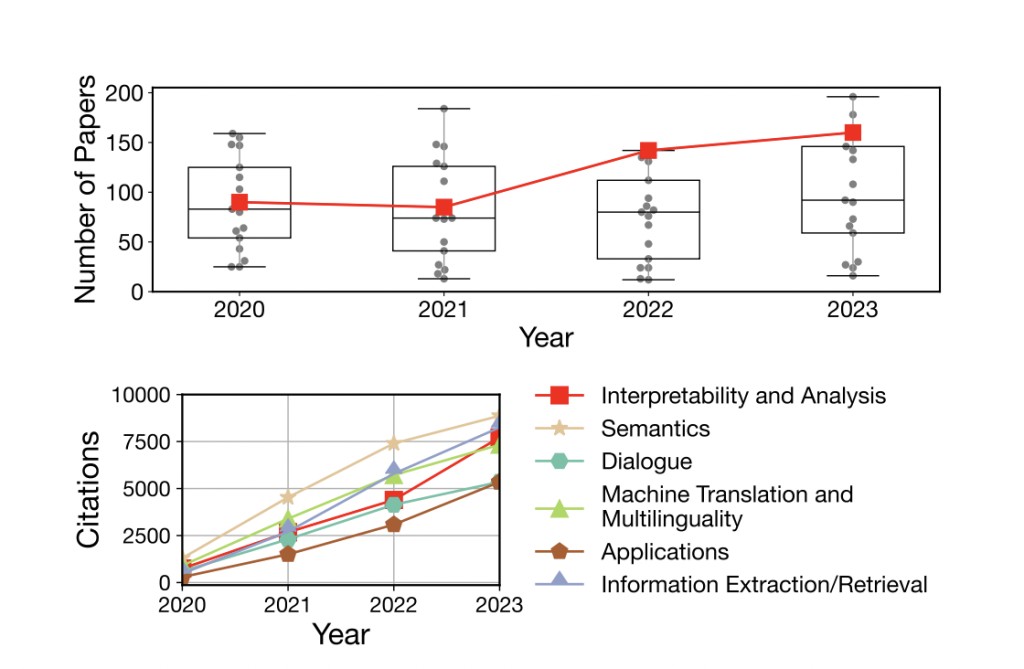Natural language processing (NLP) has experienced significant growth, largely due to the recent surge in the size and strength of large language models. These models, with their exceptional performance and unique characteristics, are rapidly making a significant impact in real-world applications.
These considerations have spurred a great deal of research on interpretability and analysis (IA) in natural language processing (NLP), which aims to decipher the logic behind LLMs and the reasoning behind their predictions. Improving LLMs’ efficiency, robustness, and trustworthiness is crucial for their safe and successful deployment, which is a common motivating factor for researchers in this field. The impact of IA research on the design and construction of new NLP models is minimal since it frequently fails to provide practical insights, particularly regarding how to enhance models.
By conducting a thorough, mixed-methods analysis of the historical and contemporary effects of IA research on NLP, a new research paper aimed to answer these concerns and provide direction for the field’s future. A bibliometric study of 185,384 publications from the two main NLP conferences (ACL and EMNLP) from 2018 to 2023 is conducted, and 138 NLP community members are surveyed to gather their thoughts. The researchers performed a qualitative analysis of 556 articles and survey replies in addition to the quantitative results.Â
The study shows that researchers in natural language processing (NLP) use results from information architecture (IA) studies in their work, regardless of whether they do the work themselves. For different reasons, both researchers and practitioners in NLP see IA studies as important for NLP, various subfields, and their work. Many new, non-IA methods are suggested and heavily influenced by IA findings for different areas, even though IA findings do not drive influential non-IA work but cite them. There is room for improvement in the rest of NLP, even though these work results demonstrate that AI offers valuable remarks. Thus, the team concludes with a call to action and recommendations after identifying the essential components currently lacking in IA research based on survey responses: unification, actionable recommendations, human-centered, interdisciplinary work, and standardized, rigorous techniques.Â
The researchers acknowledge that the 138 responses they received may not fully represent the entire field of NLP. Despite their efforts to gather a diverse and comprehensive sample of respondents, including ensuring a minimum of 10 respondents for each category, the findings should be interpreted with this limitation in mind.
Check out the Paper. All credit for this research goes to the researchers of this project. Also, don’t forget to follow us on Twitter.Â
Join our Telegram Channel and LinkedIn Group.
If you like our work, you will love our newsletter..
Don’t Forget to join our 45k+ ML SubReddit
The post How Valuable is Interpretability and Analysis Work for NLP Research? This Paper Investigate the Impact of Interpretability and Analysis Research on NLP appeared first on MarkTechPost.
Source: Read MoreÂ

